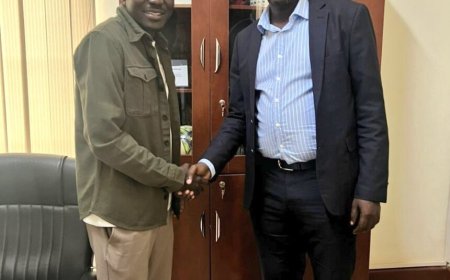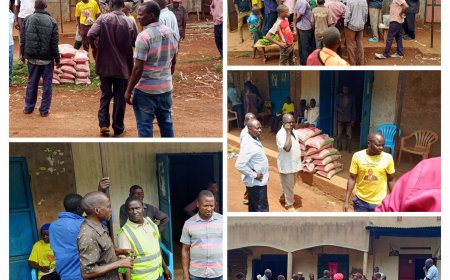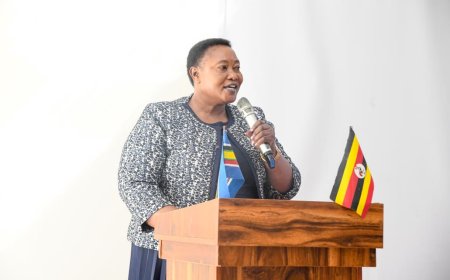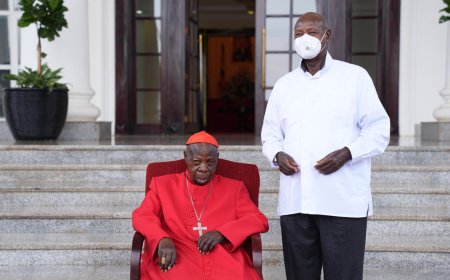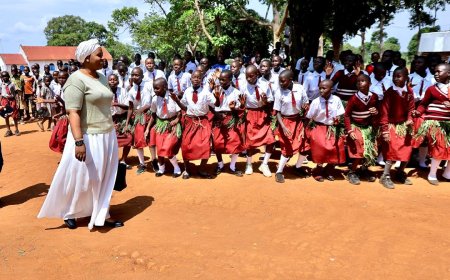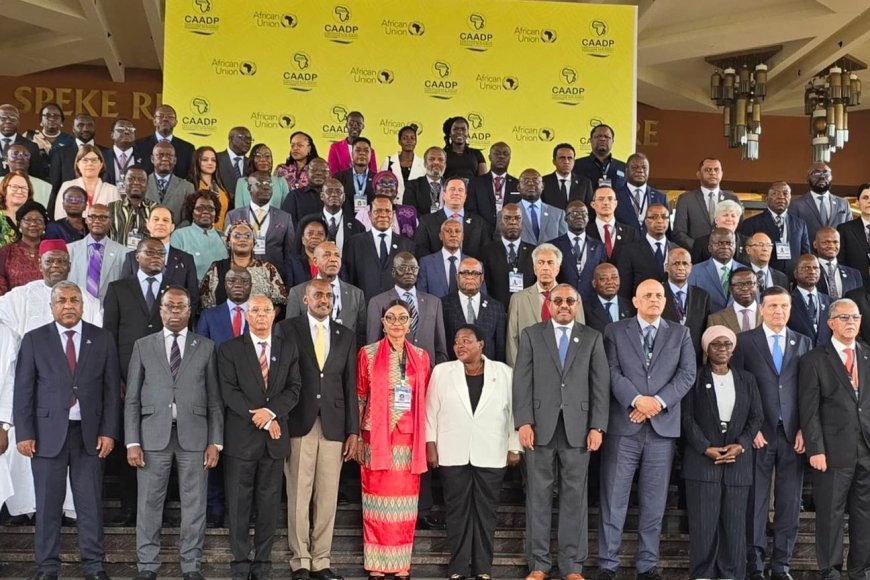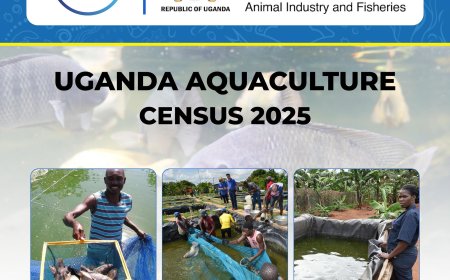Farmer Leaderships Stage Protest Against AU and AU Commission's bill of Kampala Declaration for Missing Amendments.
Farmer organizations and CSO’s in Uganda are calling upon His Excellence the president, Yoweri Kaguta Museveni and his Ministry of Agriculture, Animal Industry and Fisheries to review, together with other African governments, the Kampala Declaration plan of 10 years for Africa, under Comprehensive Africa Agriculture Development Program (CAADP).
The Kampala Declaration, yet to be formalized by the CAADP Strategy and Action Plan, 2026-2035 with strategic framework is designed to revolutionise Africa's agriculture by fostering resilient and sustainable foodsystems aims to delineate Africa's agricultural development priorities for the next decade. It will also be adopted by Heads of State during their meeting in Kampala inJanuary 2025.
Another objective of this declaration is to reflect the diverse agricultural requirements of Africa and to unite stakeholders under a shared vision for a sustainable and self-sufficient food system, prioritizing environmental sustainability, food security and economic development.
Holding a joint press conference, Saturday, Dr. Million Belay, General Coordinator AFSA, said, farmers participated in the development of the document that will be called the Kampala Declaration, expected to be out by next year, however, most of their demands were unconsidered, such as the agroecology among others in favor of much to do with business, yet this a green revolution agenda.
If the bill is not edited, the direction being taken here may be difficult for farmers to return, he added.

The Comprehensive Africa Agriculture Development Programme (CAADP) was launched in 2003 under the Maputo Declaration, where African leaders committed to allocating at least 10% of their national budgets to agricultural development to achieve a 6% annual growth rate in the agricultural sector, Hakim Baliraine, chairperson ESAF Uganda, giving a brief background about the CAADP in his remarks, noted.
He said the commitment aimed to address food insecurity, poverty, and underdevelopment by boosting productivity and fostering rural growth. However, Dldespite progress under the CAADP, the ambitious goals remain unmet across much of Africa, the 2014 Malabo Declaration reiterated these commitments, emphasizing accountability, inclusivity, and sustainable agriculture.
Baliraine mentioned that as leaders prepare to adopt the CAADP Strategy and Action, new priorities have emerged in the Plan for 2026-2035.
Civil society and farmer organizations, including Advocacy Coalition for Sustainable Agriculture (ACSA), Alliance for Food Sovereignty in Africa (AFSA), Eastern and Southern Africa Small-scale Farmers' Forum (ESAFF) Uganda, Coalition of Pastoralist Civil Society Organisations (COPACSO), FIAN-Uganda and Participatory Ecological Land Use Management (PELUM) Uganda have contributed to developing this strategy, which is expected to culminate in the Kampala Declaration in January 2025, summit to be hosted under the leadership of the government of Uganda, he added.
According to Baliraine, demands needed to be recognized by the kampala declaration include, supporting the voices of farmers and Integrate Agroecology. Agroecology must be recognized as a primary strategy within Africa's agricultural policies. Research shows agroecological practices increase crop resilience by up to 30% in areas prone to drought and extreme weather, helping smallholder farmers maintain productivity and income in challenging conditions. Uganda is one of the African countries that has embraced Agroecology and is developing an Agroecology strategy.
He explained that empowering smallholder farmers, pastoralists, and fisherfolks is another factor. Small-scale food producers, women, and youth must have meaningful roles in decision making. Moving beyond token participation is essential to ensure their insights shape policies directly impacting their lives.
Rejecting GMOs and Synthetic Inputs, he said. Oppose GMOs and synthetic inputs, which often favor large corporations at the expense of biodiversity and soil health. Stronger biosafety protocols and protection against corporate control of Africa's genetic resources are necessary, Baliraine indicated.
Supporting and facilitating the establishment of an Inclusive Advisory Role for Food Producers to foster inclusivity, proposing to create an advisory council within CAADP for smallholder farmers and civil society, mirroring the role currently afforded to the private sector, he added.
Allocating financial investments to farmer managed seed systems and biofertilizers. He described that public sector investment in farmer managed seed systems and organic biofertilizers is vital to enhance soil health and resilience in the face of climate challenges.















































